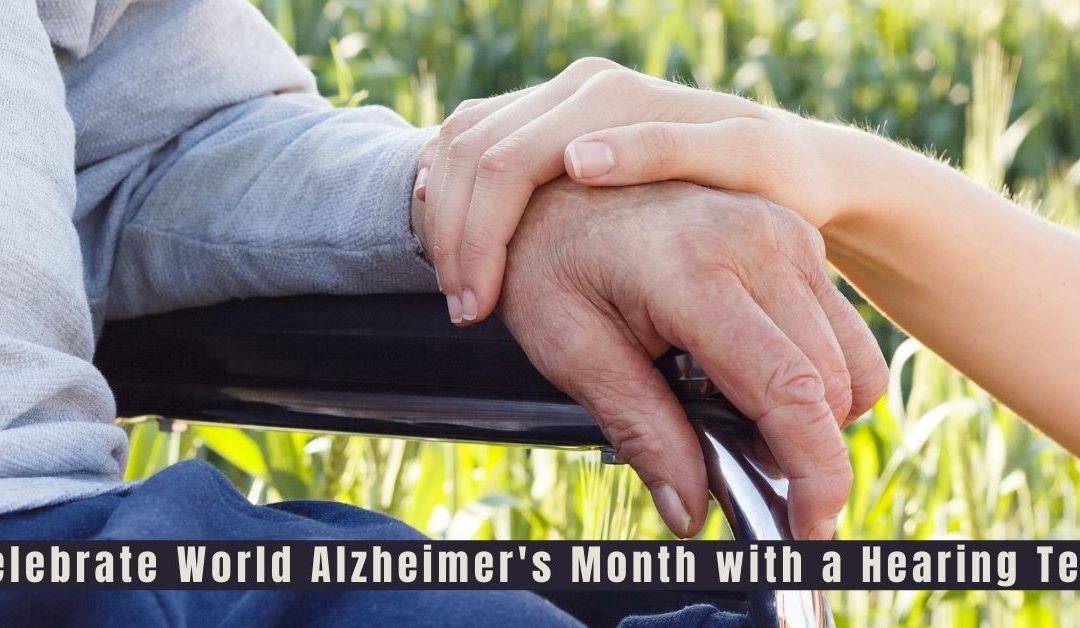Several years ago, September was designated World Alzheimer’s Month. During this month, Alzheimer’s Disease International raises awareness on dementia, and helps people understand why it’s so common. At least 50 million people around the world suffer from dementia or Alzheimer’s disease, and that number is expected to grow in the next few years.
Understanding Alzheimer’s Disease
Adults over the age of 65 are the most at risk of developing dementia or Alzheimer’s disease. This disease impacts seniors as well as their family, friends, and caregivers. Alzheimer’s disease is a progressive disease, meaning it will get worse as time goes on. Dementia and Alzheimer’s disease affects the brain. A growth of cells, called plaques and tangles, disrupts normal brain function, and leads to cognitive decline.
Some of the early signs of Alzheimer’s disease include:
- Memory loss
- Confusion
- Getting lost in familiar places
- Difficulty with simple tasks like paying the bills
- Difficulty with daily tasks, like getting dressed or eating
- Having poor judgment, like leaving the house with a warm coat on a hot day
- Experiencing changes in personality or mood
These are just some of the common signs of dementia or Alzheimer’s disease. If you’ve noticed any of these symptoms in yourself or a loved one, visit your primary physician as soon as possible.
How Hearing Loss Affects Cognition
Hearing loss is one of the risk factors for developing dementia or Alzheimer’s disease. If you have hearing loss, you’re more likely to develop Alzheimer’s disease. This is because hearing loss affects cognition. Our cognitive ability can be impacted by a number of factors, including age, our lifestyle choices, or even the medications we take.
Hearing clearly helps our brain function at its best, but hearing loss decreases cognitive health. When we have hearing loss, the neural networks in the brain that process sounds aren’t getting enough information about the sounds around you. The longer you live with untreated hearing loss, the more these neural pathways are damaged by lack of use. The pathways can be disrupted and cells in these areas may die.
This damage from hearing loss reduces our cognitive function. It also paves the way for dementia or Alzheimer’s disease. When we’re not exercising our brains with the right kind of input, dementia can further disrupt these weakened neural networks in the brain.
Hearing Loss and Isolation
Another link between hearing loss and dementia is social isolation. We all rely on our family and friends to bring meaning and joy into our lives. Our social circles are also important to our mental wellbeing. Hearing loss can drive a wedge between us and the people we love. If you’re living with untreated hearing loss, you’ll have a hard time communicating with your friends. You may ask them to repeat themselves or get frustrated that you just can’t hear what’s being said. When you’re straining to hear you’re also putting a lot of stress on your brain. Hearing loss can lead to physical and mental exhaustion that will increase your risk of developing Alzheimer’s disease.
Your social life is incredibly important for your cognitive health. Getting together with friends keeps your mind sharp and exercises all the neural pathways in your brain. It’s also a great motivator to be more physically active, and you’ll keep your brain healthy as your muscles and your heart stay strong.
Why Treating Hearing Loss Is So Important
If you have hearing loss, the best thing you can do for your health and wellbeing is to treat your hearing loss. Wearing hearing aids will help you hear all the sounds you’re straining to hear. Your brain will get the right kind of exercise and you’ll be keeping your neural pathways strong and healthy. You’ll also be able to enjoy your social life, easily hearing what your loved ones are saying.
Take a Hearing Test
Celebrate World Alzheimer’s Month with a hearing test. Our team provides comprehensive hearing health services and can help you explore your hearing aid options. Our hearing aids are calibrated to exactly fit your hearing needs. You’ll also be able to select from a number of advanced programs, like speech enhancement, connectivity, or noise reduction. Find out more about your unique hearing loss, and what you can do to hear better.


